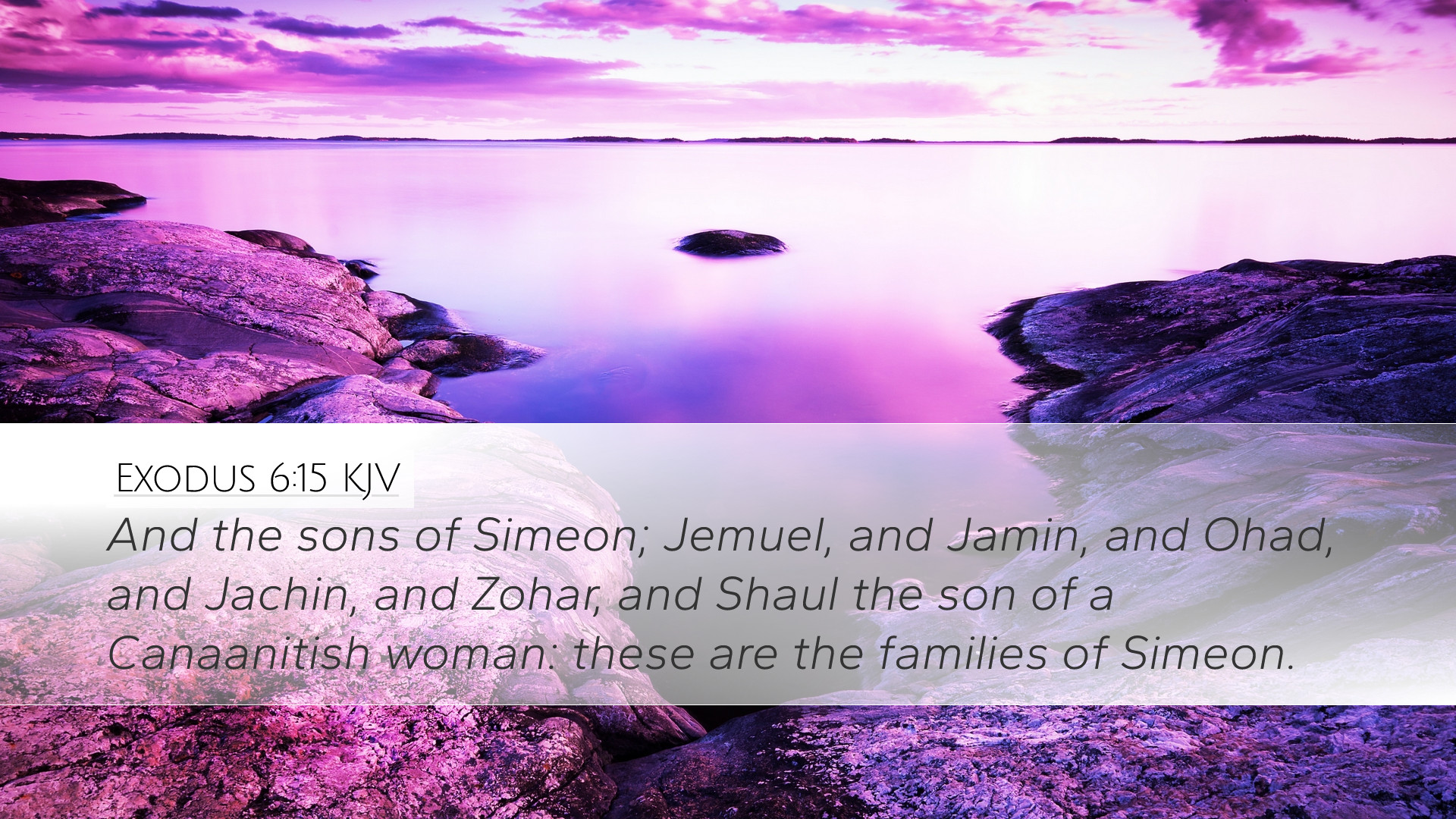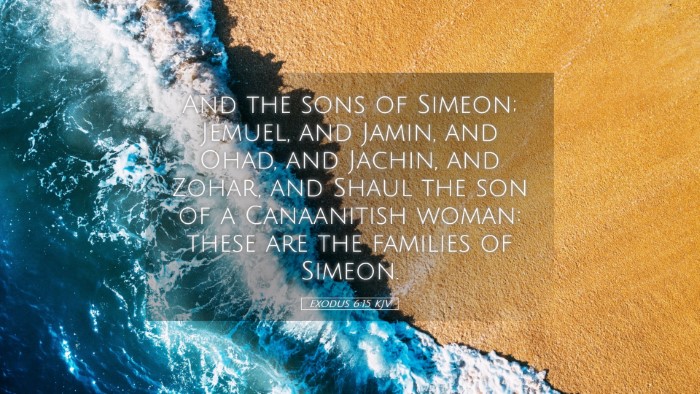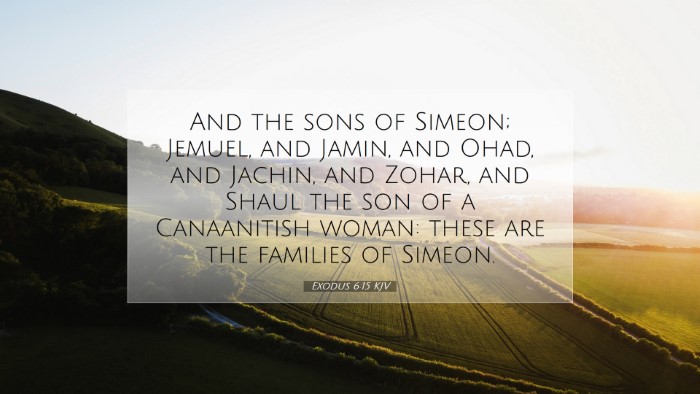Commentary on Exodus 6:15
In Exodus 6:15, we encounter the genealogical record of the tribes of Israel, specifically focusing on the family of Reuben, Jacob's firstborn. This verse serves to trace the lineage of God's chosen people, reminding us of the importance of heritage in the unfolding story of redemption.
Text of Exodus 6:15 (ESV)
“The sons of Reuben: Hanoch, Pallu, Hezron, and Carmi. These are the clans of the Reubenites.”
Context and Background
This verse is embedded within a larger narrative of God's covenant with Israel amid their oppression in Egypt. The purpose of this genealogical account is not merely a record of names but rather a declaration of God's faithfulness to His promises and His ongoing relationship with His people.
Insight from Matthew Henry
Matthew Henry emphasizes the significance of genealogies in Scripture, which serve to establish the identity of God's people and connect them to their covenantal heritage. He notes that the sons of Reuben represent the twelve tribes of Israel, each having a distinct role in God's plan. Henry remarks that the mention of these clans reaffirms God's commitment to His promises made to the patriarchs, reminding the Israelites of their roots and calling.
Spiritual Implications of Reuben's Lineage
- Covenantal Remembrance: The genealogies invite the faithful to remember their covenantal history with God.
- Identity and Heritage: Understanding one’s lineage in faith can strengthen personal and communal identity.
Albert Barnes' Perspective
Albert Barnes provides detailed observations about the names of Reuben's sons. Hanoch, Pallu, Hezron, and Carmi each carry significant implications. Barnes points out that these names remind us of the traits associated with each clan and their descendants. Each name reflects aspects of their ancestry and foreshadows characteristics of the tribes as they develop.
Characteristics of Reuben’s Descendants
- Hanoch: His name means "dedicated," highlighting the importance of dedication in following God's intentions.
- Pallu: The meaning is "distinguished," indicating that God's people are set apart for a divine purpose.
- Hezron: His name translates to "enclosed," suggesting a sense of preservation under God’s care.
- Carmi: Meaning "vine-dresser," this symbolizes cultivation and the nurturing aspects of God's work among His people.
Thoughts from Adam Clarke
Adam Clarke posits that the genealogy serves as a testament to God's faithfulness. He underscores that despite the suffering of the Israelites in Egypt, their lineage continues to be a point of hope and restoration. Clarke also elaborates on the sociocultural implications of these names, suggesting that through understanding the families and their roles, the Israelites could grasp the significance of their collective identity.
Restoration Amidst Suffering
- The Reality of Oppression: While acknowledging the hardship the Israelites faced, Clarke reassures readers that God remains sovereign.
- Hope in Heritage: The genealogies exemplify how God works through history, offering hope that restoration will come.
Concluding Reflections
Exodus 6:15 encapsulates essential truths for pastors, students, theologians, and Bible scholars. The genealogical list is far from mundane; it serves as a reminder of inheritance, identity, and divine promise. The names of Reuben’s sons invite deeper reflection on our own spiritual heritage and God’s unyielding faithfulness to His people.
Application for Today
- Understanding Our Roots: Exploring our spiritual lineage can deepen our understanding of our faith journey.
- Embracing Identity in Christ: The significance of being set apart as 'God's people' calls for a life dedicated to His purpose.
- Hope Amid Trials: Just as Moses was reminded of God's promises, believers today are encouraged to find hope in God's unchanging nature.


